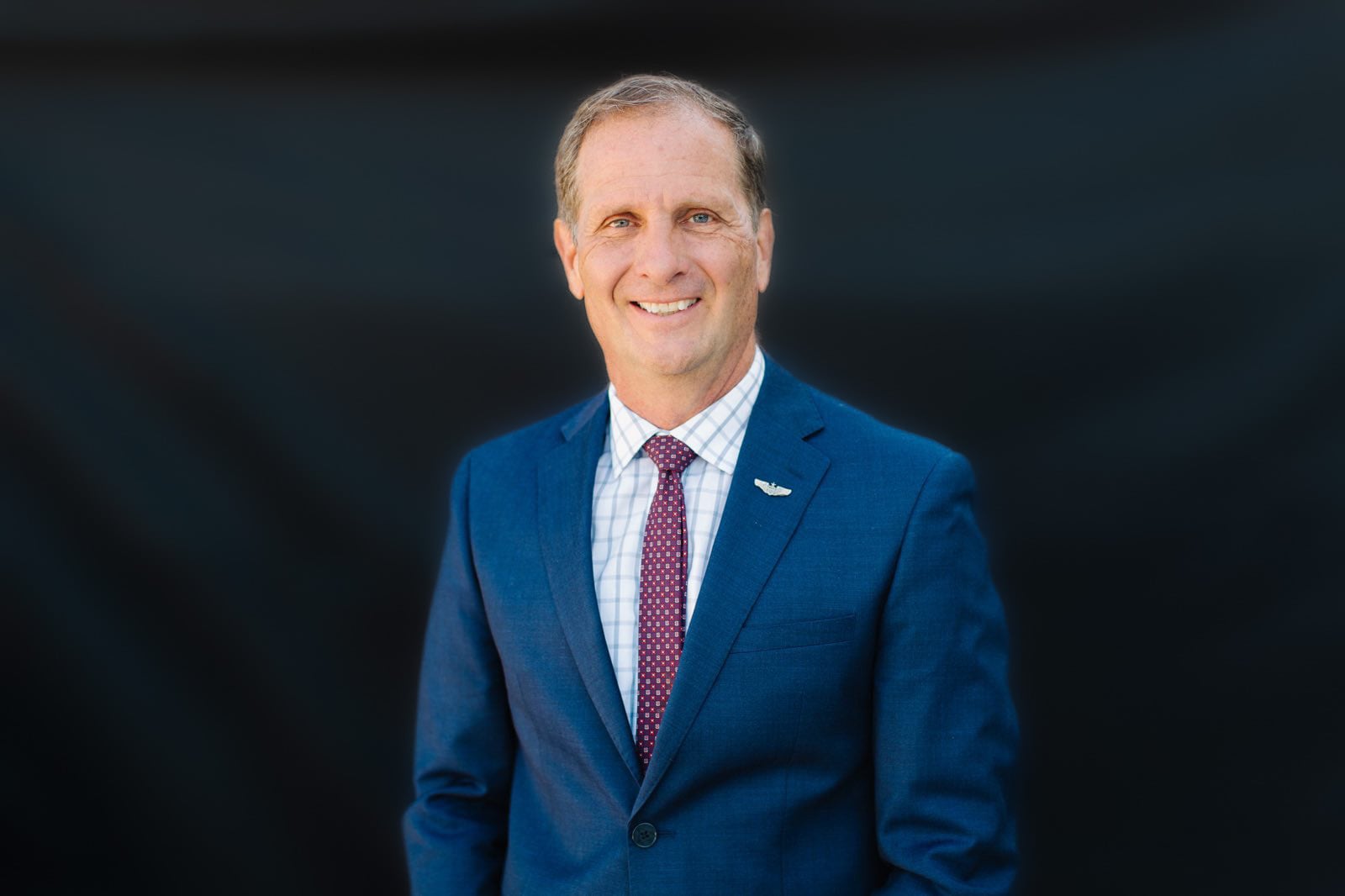Photo courtesy of Chris Stewart
After more than a decade of representing Utah’s 2nd District, former Rep. Chris Stewart served his final day as a Utah congressman Friday, Sept. 15. For those familiar with his varied career, his planned resignation may not have come as much of a surprise—but what may surprise some is what he’s signed on to do next.
Yesterday, Stewart announced he will serve as chair of the Utah Aerospace and Defense Association (UADA) advisory board, an organization that was established last year. UADA serves as the first convening body for aerospace and defense companies in the Beehive State, partnering with the Utah Governor’s Office, World Trade Center Utah, the Utah Legislature and others.
“It’s an honor to work on these issues at a very important time,” Stewart says of his new role. “Being an Air Force pilot had an impact [on my decision], and I come from a military family … I have a lifetime of work in this area. It’s deep in my DNA.”
A multifarious career
So far, Stewart has had a busy, even restless, career. As a pilot in the United States Air Force, he piloted fixed-wing jets, rescue helicopters, and a B-1B bomber. He’s claimed top speed records more than once and set the world record for the fastest nonstop flight around the world in 1995. “Serving in the military will always be the proudest thing I’ve ever done,” Stewart says. “[There’s a] brotherhood that’s impossible to replicate anywhere else.”
Stewart got bit by the writing bug in the 1990s, causing him to write over a dozen bestselling books. Titles like “Seven Miracles That Saved America,” “Winter Sky” and “The Miracle of Freedom: 7 Tipping Points That Saved The World” landed him on the New York Times bestseller list more than once.
What Stewart accomplished in Congress may stand the test of time as his proudest work, however. He was instrumental in establishing the National Suicide Prevention Lifeline, recently renamed the 988 Suicide & Crisis Lifeline—a three-digit phone number that offers 24/7 call, text and chat access to the distressed, namely those experiencing thoughts surrounding suicide, substance abuse or mental health.
Photo courtesy of Chris Stewart
In 2020, Stewart introduced the National Suicide Hotline Designation Act with Rep. Seth Moulton (D-MA). Legislation was quickly passed and signed into law by former President Donald Trump later the same year. Since the lifeline was launched just over a year ago, 988 has received about 5 million contacts, including 2.6 million calls, 740,000+ chats and 600,000 texts.
“Having worked with suicide prevention among our soldiers, then among our kids, I know how desperately it’s needed,” Stewart says, adding that the lifeline helps save hundreds of thousands of lives annually. “If I had done nothing else in Congress, if I’d walked away and only accomplished that, I would feel like it was worth all the time I spent there.”
What’s next for Chris Stewart?
While it wasn’t an easy decision to make, parting with Congress allows Stewart to provide better care for his family, he says. After his wife suffered a stroke about a year ago, he knew he had to make some changes to allow him to be home more consistently.
Though he’s leaving his congressional seat earlier than he expected he might, Stewart believes serving between 12 and 14 years is a sweet spot for many reasons.
“You’re still energetic, you’re still learning, you’re still really involved … but you haven’t been overcome by D.C. yet,” he says. “A lot of people stay way too long in the city and in the work.”
When current UADA President and CEO Aaron Starks approached Stewart and suggested the two work together, Stewart was only too happy to oblige. For many reasons, he says, it was a very natural fit.
After countless conversations and a lot of pondering on his own, Stewart felt he learned so much through his experiences in the military and Congress, working on defense appropriations and the intelligence committee.
“And I thought, gosh, I hate to walk away from all this,” he says. “Isn’t there something I can do to allow me to keep working in this area?”
As chair of UADA, Stewart will help the organization discover possible capabilities within the state, as well as determine the national security challenges Utah faces and ways to combat them.
“The Utah Aerospace & Defense Association (UADA) convenes, promotes, and advocates for companies competing in the aerospace and defense industry,” the organization’s website reads. “We are building the world’s premier ecosystem for aerospace and defense companies in Utah.”
What future challenges will face the military and national security? Where is Utah deficient? How do we address those threats, and what technologies or companies can we quickly bring in as enduring solutions? In his new role at UADA, these questions and more will be under Stewart’s purview.
“Our nation is in a dangerous time, and I worry a lot about where we are,” he said on his final day as a congressman. “Socially and politically, I don’t think we have been as divided as we are now since 1850. I know it sounds dramatic, but I really believe that. I think a lot of people do. At the same time, from an international perspective and from a national security threat perspective, I’m 100 percent confident we haven’t had such a dangerous time since the 1930s. … The fundamental responsibility of the federal government is to protect Americans and protect national interests around the world, and that’s growing increasingly harder. But if you go down a layer, how can the industries of our own community and state help do that? That’s what matters most.”

